France celebrates eleven public holidays each year, which is the second highest number of annual holidays in Europe after Austria. Additionally, two other holidays are observed in certain regions in France.
The French public holidays include both civil holidays – for example New Year’s Day and May Day – and religious holidays such as Easter and Christmas.
The religious days are based on the Catholic calendar and only Christmas and All Saints’ Day remains static, Easter and related holidays change every year.
Public holidays are referred to as national holidays in France and are also called fêtes or jours fériés. They are very important to the French as they firmly believe in a good life-work balance and thoroughly enjoy spending quality time with their family and friends.
It is French law that everyone is entitled to five weeks of paid vacation every year. July and August are truly vacation months in France as the schoolchildren are on summer break and a number of companies have an annual shutdown for a couple of weeks in August so all their employees can take their vacation.
It is important to remember that if a public holiday falls on a Tuesday, many smaller shops will also be closed on the Monday before. If the Public Holiday falls on a Thursday, many small businesses will also remain closed on the Friday after as well.
Supermarkets are often open until noon on public holidays – except Christmas and New Year – and display their adjusted opening hours at the entrance.
If you are planning to live in France, immersing yourself in the country’s various public holidays and joining in the celebrations can help you integrate in the French society faster. It is also fun seeing the differences between celebrations in France and your home country.
The official public holidays in France are:
- New Year’s Day (Nouvel An) on January 1st
- Good Friday (Vendredi saint) – observed in Alsace and Moselle only
- Easter Monday (Lundi de Pâques) – the day after Easter Sunday
- Labour Day (Fete du Travail) on May 1st
- Victory Day (Victoire 1945) on May 8th
- Ascension Day (Ascension) – 39 days after Easter Sunday
- Whit Monday (Lundi de Pentecôte) – 50 days after Easter
- Bastille Day (Fete Nationale Française) on July 14th
- Assumption Day (Assomption) on August 15th
- All Saints’ Day (Toussaint) on November 1st
- Armistice Day (Armistice 1918) on November 11th
- Christmas Day (Noël) on December 25th
- Saint Stephen’s Day (Saint Étienne) – observed in Alsace and Moselle only
1. New Year January 1
The New Year celebrations in France start on New Year’s Eve, known as “La Saint-Sylvestre” or “Le Reveillon de la Saint-Sylvestre,” honoring St. Sylvestre, the patron saint of the New Year.
Families and friends come together to enjoy a fine meal, often similar to Christmas meals, featuring delicacies like caviar, oysters, foie gras, and goose. Champagne is a staple drink during the celebrations.
Costume parties, known as “Des soirees deguisees,” are popular during this time, adding a festive touch to the celebrations.
In the past, New Year’s cards (“Les Cartes de Voeux du Nouvel An”) were commonly sent on January 1st, but in modern times, virtual greetings have become more prevalent.
The President of France delivers a televised speech to the nation at 8 PM on December 31st, reflecting on the past year and looking ahead to the future.
In Paris, people gather at the Champs-Élysees to witness a light show on the Eiffel Tower at midnight, creating a spectacular visual display.
French New Year’s Eve celebrations often involve the tradition of cheek kissing (“La Bise”) at midnight, where people exchange kisses with friends and family.
New Year’s Day is an official public holiday in France. It is a time for sharing resolutions among close family members and exchanging cards and gifts that reflect the festive spirit of the occasion.
Families enjoy a special meal on New Year’s Day, often featuring heart or log-shaped desserts, such as ice cream Buche de Noel, along with other traditional dishes like veal, beef, duck, and salad.
Parades fill the streets, and families may watch televised celebrations, including the illuminated Eiffel Tower and fireworks at midnight. Expect to receive kisses on both cheeks and hearty wishes of “bonne annee” at midnight, continuing the tradition of cheek kissing.
In large cities, public transportation is often free on New Year’s Eve to discourage driving, promoting safety during the celebrations.
2. Easter
Easter Sunday is a central celebration for Christians in France, commemorating the resurrection of Jesus Christ. Many Christians attend church services and participate in special Easter Mass to mark this important event.
Families come together on Easter Sunday to enjoy a festive meal and spend time with loved ones. It is a time for sharing meals, exchanging gifts, and celebrating the joy of Easter.
Like in many countries, Easter eggs are a popular symbol of Easter in France. Children participate in egg hunts, and chocolate eggs are exchanged as gifts during this holiday.
Traditional French Easter foods include lamb dishes, such as roasted lamb or lamb stew, which symbolize the sacrificial lamb of God. Other common foods include pastries like the “Pain de Pâques” (Easter bread) and various desserts.
Good Friday is observed by Christians in France as a day to commemorate the crucifixion of Jesus Christ. It is a solemn day marked by church services and reflection on the sacrifice of Jesus.
The day before Easter Sunday, Holy Saturday is a time of anticipation and preparation for the joyous celebration of Easter. Many churches hold special services on this day.
Easter Monday is a public holiday in France, allowing families to continue their celebrations and enjoy time together. It is a day off for many people, with schools and most businesses closed.
3. Labor Day or May Day May 1
May Day, celebrated on May 1st in France, is known as Labor Day or La Fete du Travail. It holds historical significance and is a public holiday dedicated to workers’ rights. French people typically celebrate this day with various traditions and customs.
May Day in France has its roots in the United States, where workers’ unions mobilized in 1884 to demand an eight-hour workday. The date of May 1st was chosen as it marked the first day of the accounting year for companies across the Atlantic.
Large demonstrations took place on May 1st, 1886, with over 300,000 workers protesting peacefully. Tragic events followed in Chicago, leading to the adoption of May Day as a day of demonstrations in France by the Second Socialist International Congress in 1889.
Lily of the valley flowers (“muguet” in French) are a central symbol of May Day in France. It is customary for friends and family to offer each other sprigs or bouquets of lily of the valley for good luck on this day.
French people typically present lily of the valley flowers to loved ones as a token of appreciation. Families often venture into the woods early in the morning to pick these flowers. In urban areas like Paris, individuals and labor organizations sell bouquets of lily of the valley on the streets.
May Day is a public holiday in France, with schools and most businesses closed. People engage in parades and demonstrations organized by trade unions and other groups to advocate for workers’ rights. These events may also address broader social issues like human rights and racism.
4. Victory Day May 8
Victory Day on May 8th in France, known as “Victoire 1945” or “La Fete de la Victoire,” commemorates the end of World War II and the victory of the French and their Allies against Nazi Germany. The day holds a dual commemoration.
Victory Day marks the unconditional surrender of the German Army to the Allied forces on May 8, 1945. This surrender, signed in Berlin, ended the war in Europe and brought about the liberation of France from Nazi occupation. The announcement of the end of the war by Charles de Gaulle was met with celebrations across France, with church bells ringing and people rejoicing.
In addition to celebrating the victory in WWII, May 8th in France also commemorates the Setif massacre, where Algerian nationalists perpetrated violent acts during the post-WWII celebrations. This somber aspect of the day remembers the tragic events that occurred alongside the victory celebrations.
French people attend parades, church services, and ceremonies to honor the end of WWII. Patriotic songs are sung, and the French national flag is prominently displayed.
Wreaths are laid at war memorials in villages, towns, and cities across France. These ceremonies pay tribute to those who sacrificed their lives during the war.
Victory Day is a national holiday in France, leading to the closure of schools, post offices, banks, businesses, and many restaurants. The day is marked by parades, flag displays, and moments of remembrance.
In regions like Reims, Champagne, traditional meals featuring ham, game, champagne, and local cheeses are enjoyed. The Biscuit Rose de Reims, a pink biscuit dipped in champagne, is a popular sweet treat.
5. Ascension Day
Ascension Day in France is observed 40 days after Easter Sunday and marks the ascension of Jesus into heaven. It is a key event in Christian theology and is celebrated by Catholics and Anglican Christians in France.
Ascension Day is a public holiday in France, allowing people to attend church services, spend time with family, and enjoy a day off from work. Schools, businesses, and administrative services are typically closed on this day.
On Ascension Day, many Christians in France attend church services to commemorate the ascension of Jesus. Traditional foods associated with this holiday include poultry and seasonal spring dishes like young lamb, asparagus, avocado salad, and mushroom soups.
In France, if the weather is pleasant on Ascension Day, people often take their meals to parks for picnics. Additionally, various events such as bike tours, sporting events, and local cultural festivals may take place to mark the occasion.
Ascension Day has been a public holiday in France since Napoleon Bonaparte agreed to reinstate it in 1801. Despite the separation of Church and State in 1905, Ascension Day, along with other Christian holidays, remains non-working throughout France.
The practice of “Faire le Pont” (making a bridge) is common in France on Ascension Day. This tradition involves taking an additional day off, usually a Friday, to create a long weekend by bridging the gap between the public holiday and the weekend.
6. Whit Sunday
Whit Sunday commemorates the coming of the Holy Spirit to the disciples following the death of Jesus Christ. It marks the beginning of the Christian church as a meaningful movement and is considered the birthday of Christianity. The biblical account describes how the apostles, inspired by the Holy Spirit, preached the first Christian sermon, leading to the conversion and baptism of many people.
Whit Sunday falls on the seventh Sunday after Easter, marking 50 days since the final Sabbath of Passover. The name “Whit” or “Whitsun” is derived from Pentecost being a day for baptisms when participants would dress in white. It is also linked to the Anglo-Saxon word “wit,” meaning understanding, symbolizing the disciples being filled with wisdom from the Holy Spirit.
In France, Whit Sunday is observed as an observance holiday, allowing families to come together for meals and gatherings. Traditional foods associated with this day include seasonal dishes like young lamb, asparagus, avocado salad, and mushroom soups.
Whit Monday, which follows Whit Sunday, is a public holiday in France. However, there has been confusion and debate surrounding this holiday due to changes in its status over the years. In recent times, there have been discussions about whether it should remain a public holiday or be redefined as a “day of solidarity.”
7. Bastille Day
Bastille Day is France’s national day and it is celebrated on the 14th of July and it remembers the Storming of the Bastille on July 14, 1789 by a revolutionary mob. Their attack was viewed as a symbolic act against the royal authority in Paris. This was the first action of the French Revolution.
The main reason that this date is so important is that one year later, on 14 July 1790, the ‘Fête de la Fédération’ was held on the Champ de Mars. 100,000 Parisians gathered in the street to celebrate the new French Nation’s unity and national reconciliation.
Since 1880 a huge military parade has taken place each year on this date in Paris. The parade is now held annually on the Champs Elysée, in the presence of the French President and with thousands of participants.
Soldiers march from Arc de Triomphe to Place de la Concorde. Included in the parade is a large selection of tanks and military vehicles, along with is an aeronautical display with hundreds of helicopters and aircraft.
Bastille Day is a national public holiday, and all public and private institutions are closed. Everyone joins in the day’s fun and there are picnics, firework displays and a huge party in Place de la Bastille to mark the occasion.
8. Day of the Assumption
The Day of the Assumption on August 15th in France is a significant public holiday that commemorates the ascension of Mary, the mother of Jesus, into heaven.
The Day of the Assumption is a religious festival where Christians honor the belief that the Virgin Mary was taken up to heaven in body and soul after her death. This event is central to Catholic tradition and is celebrated with reverence and devotion by believers.
The origin of the Day of the Assumption in France dates back to the reign of Louis XIII (1610 – 1643). Facing challenges in producing an heir, Louis XIII prayed to the Virgin Mary, and his prayers were answered when his son, who would become Louis XIV, was born in 1638. In gratitude, Louis XIII declared August 15th as a Marian feast day in honor of the Virgin Mary.
August 15th was initially chosen as France’s national holiday from 1806 to 1813. Although July 14th was later declared the national holiday in 1880, August 15th remained a public holiday in France, known as the Day of the Assumption.
Despite a decline in church attendance, Catholicism remains deeply ingrained in French culture. The Day of the Assumption is an essential celebration for many Catholic Christians, marked by church services, family meals, and afternoon outings.
On the Day of the Assumption, special celebrations are held near the village of Lourdes, where pilgrims flock to seek healing and spiritual solace. The day is observed with parades, communal meals, sports, markets, and other festivities in various towns and villages across France.
The Day of the Assumption is a public holiday in France, with most businesses, administrations, and shops closed. Catholics attend mass, and families come together to celebrate and enjoy the day away from the usual commitments of work and daily life.
9. All Saints Day November 1
All Saints Day on November 1st in France, known as “La Toussaint,” is a significant public holiday with cultural and religious importance.
La Toussaint is a Catholic holiday that commemorates all the saints and is a time for families to remember and honor their deceased loved ones. It is a public holiday in France and is observed with various traditions and customs.
One of the central traditions of All Saints Day is the placement of flowers, particularly chrysanthemums, on the graves of family members. Chrysanthemums are symbolic of remembrance and are commonly seen in cemeteries and sold in stores and florist shops across France during this time.
The tradition of using chrysanthemums for All Saints Day dates back to the end of World War I when the French government requested that flowers, particularly chrysanthemums, be placed on the graves of deceased soldiers. This practice has continued, and chrysanthemums have become synonymous with honoring the dead during La Toussaint.
Families often visit cemeteries on All Saints Day to clean and decorate the graves of their loved ones. It is a time for reflection, remembrance, and honoring the memory of those who have passed away.
All Saints Day is a cherished public holiday in France, and schools, banks, and many businesses are typically closed. Families take this opportunity to come together, visit cemeteries, and participate in the traditions associated with La Toussaint.
While November 1st is dedicated to honoring public figures who have passed away, November 2nd, known as All Souls’ Day, is traditionally a day to remember close friends and relatives who have died. In France, these two days are often combined into one day of remembrance during La Toussaint.
10. Armistice Day November 11
Armistice Day in France, known as “Jour d’armistice,” is a national day of remembrance commemorating the signing of the armistice between Germany and the Allies that ended World War I. It is observed on November 11th each year. The French mark this day with reverence, honoring fallen soldiers and veterans who sacrificed for their country.
The French observe Armistice Day with various traditions and ceremonies, including:
A one-minute silence is taken at 11 A.M. to remember the fallen soldiers and military parades organized across the country.
The French president lays a wreath at the Tomb of the Unknown Soldier at the Arc de Triomphe in Paris. Citizens, often dressed in black, gather to watch the ceremony, creating a solemn atmosphere.
In addition to these official commemorations, there are services of remembrance held in every commune throughout France. In Paris, world leaders gather to lay wreaths at war memorials, with the Tricolore French National flag taking pride of place. The day is a time for reflection, honoring those who served and remembering the sacrifices made during times of conflict.
Armistice Day is not a celebration but a somber observance that emphasizes remembrance and respect for those who fought and died in wars. It is a public holiday in France, with shops, schools, restaurants, and businesses closed to mark this important day.
11. Christmas December 25
The Christmas celebrations in France start with Christmas Eve, known as Le Reveillon de Noel, a time for a long and luxurious meal that often starts in the evening and goes on until midnight and beyond.
This feast typically includes dishes like turkey with chestnuts, lobster, snails, oysters, and the traditional Bûche de Noël (yule log) for dessert. Fine wines and champagne accompany the meal, creating a festive and indulgent atmosphere.
Families come together on Christmas Eve to enjoy this elaborate meal, exchange gifts, and celebrate the birth of Jesus. It is a lively and merry affair marked by singing carols and songs around the table.
Children put their shoes in front of the fireplace, hoping that Pere Noël (Father Christmas) will fill them with presents. In some regions, gifts are exchanged on Christmas Eve.
Christmas Day, December 25th, is an official public holiday in France, allowing families to travel, cook, and enjoy a leisurely meal without the rush of attending mass or other obligations.
While some families in France exchange gifts on Christmas Eve, others celebrate Christmas Day with a late lunch, similar to Thanksgiving in the US. The day typically starts with opening presents, followed by a long and delicious Christmas meal.
Different regions in France have their own traditional Christmas dishes. For example, in Alsace, roasted goose is popular, while in Brittany, buckwheat cakes and sour cream are enjoyed. The Paris region favors oysters followed by a cake shaped like a yule log.
Some families in France opt for both December 24th and 25th celebrations, with a simpler meal on Christmas Eve and a more elaborate one on Christmas Day. This approach allows for respecting tradition while also enjoying a convenient and festive gathering with loved ones.
Local tip
In France, people of all ages usually greet you with ‘bonjour’ as they pass you in the street or going in or out of a shop. Likewise, it is nice to wish people bonne fête on a public holiday.
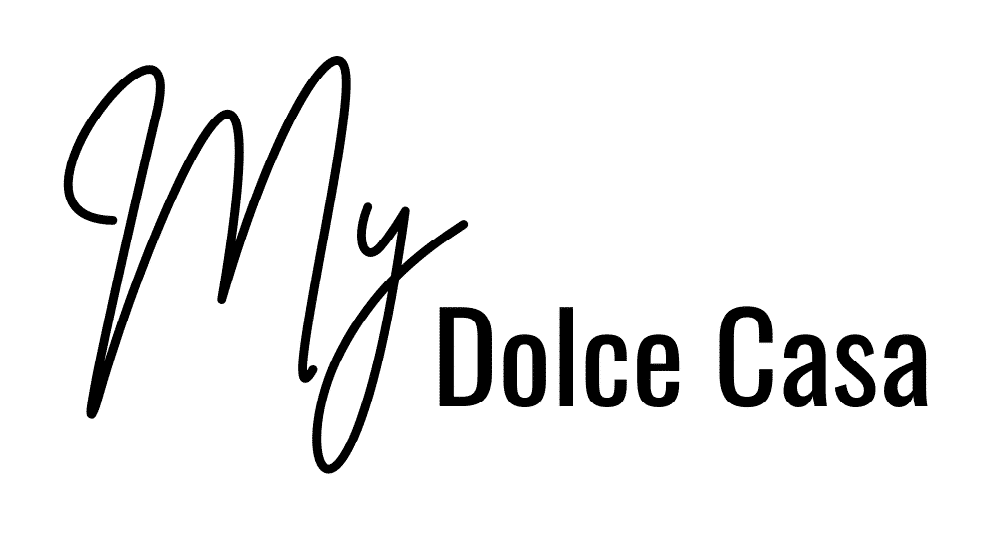
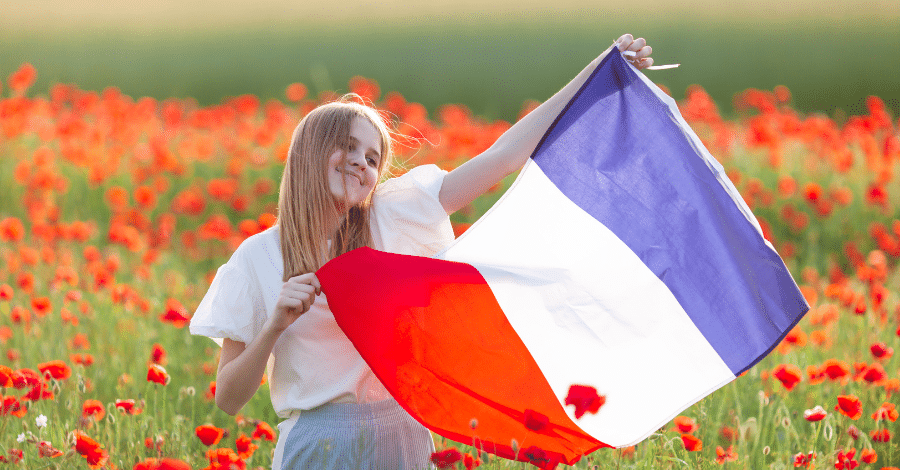

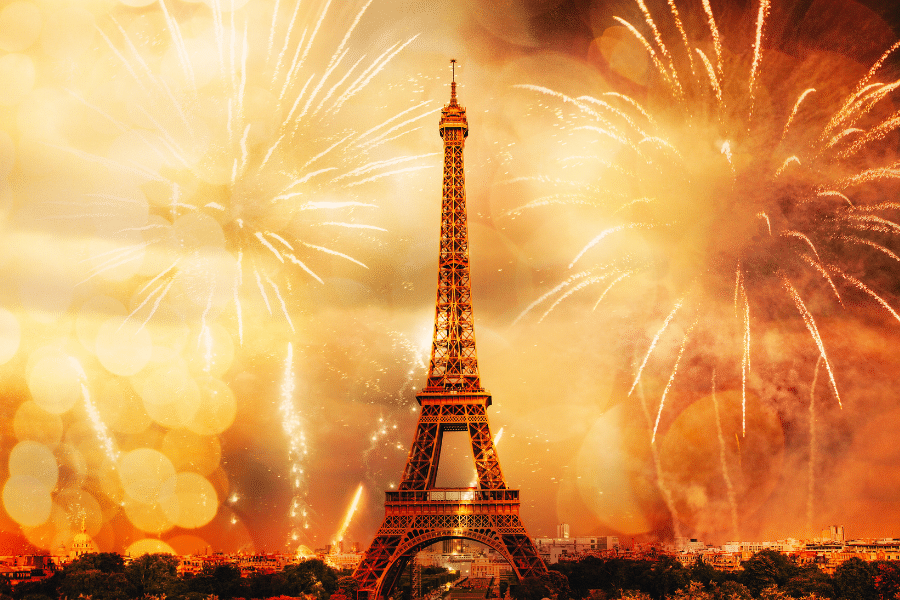


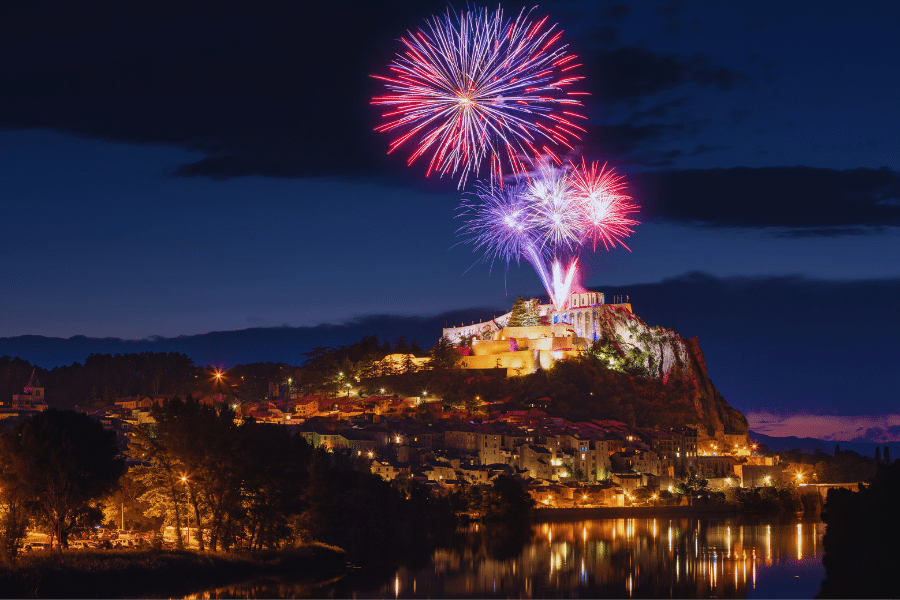
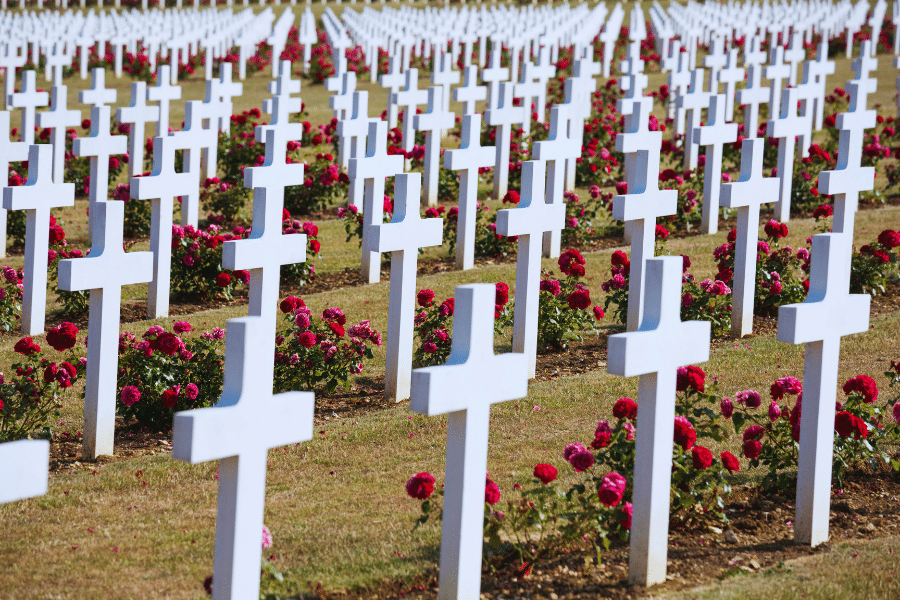
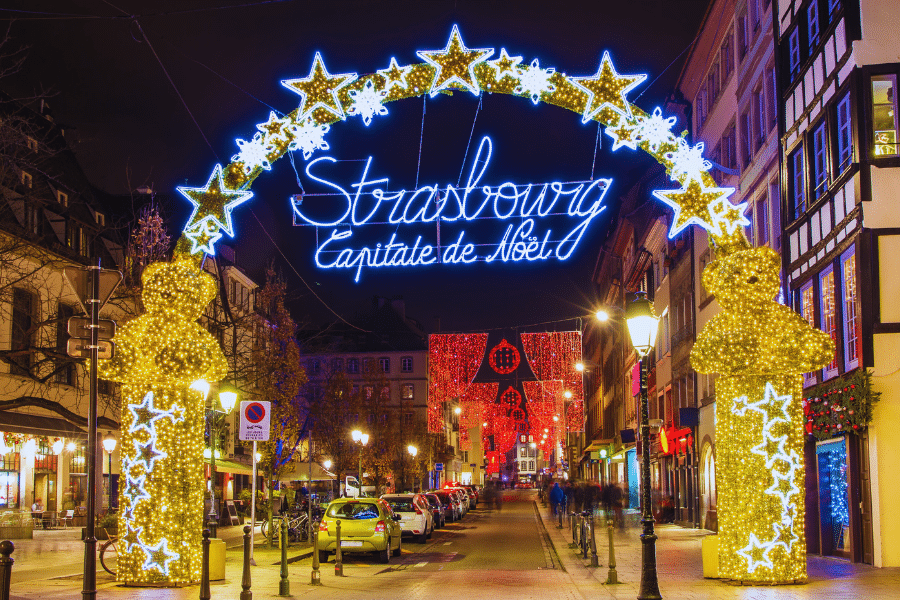
Leave a Comment